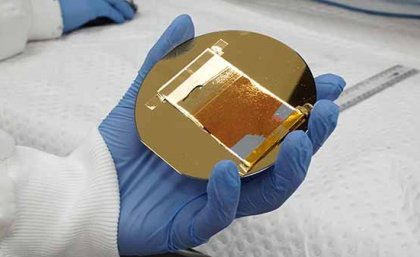
Image Credit: The University of Queensland.
A majority of the diagnostic methods involve the use of expensive materials and are costly and time-consuming to run. However, PhD candidate Mostafa Masud and research supervisors Professor Yusuke Yamauchi and Dr MD Shahriar Hossain have created a faster, less costly, and ultrasensitive biosensor for point-of-care testing.
According to Mr Masud, the most fascinating fact about the study was that it overcame some of the existing limitations faced in the early detection of diseases.
This new diagnostic technique allows for direct detection of disease-specific miRNA, which wasn’t previously possible. This is especially important for patients at an early stage of a disease such as cancer, who do not have detectable amounts of other biomarkers, but may have a detectable quantity of exosomal miRNA biomarker.
Mostafa Masud, PhD Candidate, University of Queensland
The researchers nano-engineered the platform to read samples of saliva, urine, blood, or plasma through a surface covered by a gold film, which includes millions of tiny pores.
The technique used to develop these highly-engineered porous films has been reported in Nature Protocols, a renowned scientific journal, after 15 years of research, paving the way for a new era of opportunity for research and technology development in the area of nanoporous materials.
The researchers have been continuously developing this platform and intend to make it available to medical practitioners in the next five years.
Doctors will be able to use our platform to take a small fluid sample from a patient and test for diseases instantly, for around one quarter of the cost of other diagnostic techniques.
Yusuke Yamauchi, Professor, University of Queensland
According to the team, the technology would be user-friendly and specifically helpful in developing countries and remote locations where early and rapid diagnostics were crucial, particularly in the case of viral infections.
This study was financially supported as an Australian Research Council Discovery Project and reported in the journals Biosensor and Bioelectronics and Chemical Society Reviews.
Journal Reference
Lim, H., et al. (2020) A universal approach for the synthesis of mesoporous gold, palladium and platinum films for applications in electrocatalysis. Nature Protocols. doi.org/10.1038/s41596-020-0359-8.